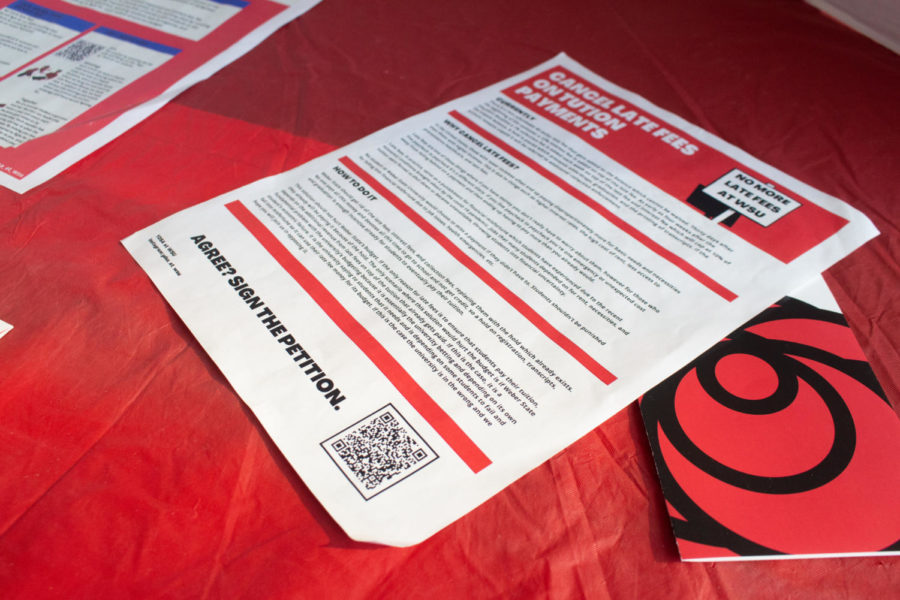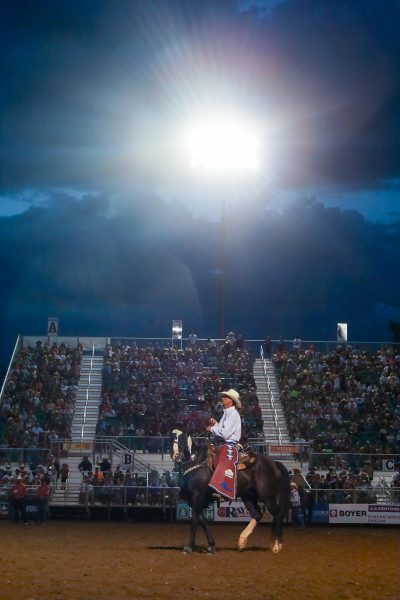Saying farewell to fees: WSU student senators vote to end late fees
In a meeting on Jan. 23, Weber State University’s student senate passed a resolution that takes a strict stance against late fees. The unanimous approval of the resolution demonstrates the senators’ understanding of the struggles that students face with WSU’s late fee policy.
WSU’s Young Democratic Socialists of America chapter spearheaded the initiative to abolish late fees given to students who miss payments for their classes.
Efforts were initially made through an active petition that has now gathered over 350 signatures, with nearly 100 of those signees leaving their own testimonials of how the financial burden put onto them by late fees has negatively affected their ability to succeed in both academic and personal life.
Currently, according to WSU’s Office of the Bursar’s late fees and penalties policy, students are given a $40 late-payment fee if their balance isn’t paid in full before the Friday preceding the first day of a given semester.
The policy also states an interest assessment on unpaid balances in a student’s account begins 30 days after the beginning of the semester with an annual rate of 12%, an interest rate that Brexton Olesky-Lee, chair of the coordinating committee for WSU YDSA, said is comparable to interest charged on a credit card.
Olesky-Lee said that when looking over the responses provided through WSU YDSA’s petition, he was shocked to find multiple instances of students who attested to accumulating $1000 or more in late fees. Many who responded to the petition said falling behind on late fees made them feel guilty for eating or caused them to skip meals altogether.
Hunter Jex, a student majoring in music direction at WSU, said he had taken a fall right before the fall 2022 semester that had left him hospitalized with a shattered jaw. Jex said he spent three months in and out of the hospital while accumulating more than $600 in late fees for missed payments on fall classes.
“It was to the point where I had no money, but I still had to eat,” Jex said. “So it became ‘Do I put away $5 every day for food?’ or ‘Do I feel guilty every time I eat because that money isn’t going towards the late fees?’”
Jex also said he lost a significant amount of weight trying to save money on food while paying off his unpaid balance in late fees. He was unable to clear his balance until the holidays arrived and his family gave him money during Christmas.
Indavady Sopraseuth, a freshman who started at WSU in fall 2022, said she had begun falling behind on her tuition payments, unaware of the repercussions for doing so. Sopraseuth found herself having to choose between buying food and buying textbooks for her classes due to the fees accumulated.
Sopraseuth said that because she is someone with a smaller frame and a low BMI, it’s important to her physical well-being that she makes sure she doesn’t skip meals. As a result, Sopraseuth said her academic performance in class suffered due to her not being able to afford the textbooks needed.
With the passing of the resolution, Olesky-Lee hopes the struggles students face because of the consequences of WSU’s late policy become more visible to WSU’s decision-makers, namely President Brad Mortensen.
“We can’t make the goal to just be to get people to agree, we have to make the goal to actually use that to turn an advantage and really improve these students’ lives,” Olesky-Lee said.





















Sean • Jan 31, 2023 at 4:05 pm
As a student, I criticize the actions of Weber State University in removing late fees as irresponsible and an example of a lack of accountability. The university should set an example for students, teaching them the importance of financial responsibility and the consequences of not meeting their obligations. Removing late fees only sends the message that there will be no consequences for missing payments and encourages students to continue to be irresponsible with their finances. This decision is also a sign of fiscal irresponsibility, as the late fees were likely a source of revenue for the university, and now they will have to find another way to make up for that loss. Ultimately, this decision will hurt the university in the long run and does not serve the best interests of the students or the institution.
Also, I condemn the involvement of the Young Democratic Socialists of America chapter in this issue. The involvement of a political organization in university policies is concerning, as it raises questions about the motivations behind their actions. Are they more concerned with advancing their political ideology or truly helping students? It is important to keep politics out of universities and focus on practical solutions that benefit everyone, not just those who align with a particular political ideology. The university should be taking a neutral stance on political issues and making decisions based on what is best for the students and the institution.
Max W • Feb 2, 2023 at 3:45 pm
Fines in circumstances like this only make the poor or less fortunate more poor and even less fortunate. Why should an organization, especially a University, benefit from students not being able to make payments on time? I believe that it does benefit the students who have no choice but to be on a payment plan and struggle to make ends meet. We don’t need to continue punishing them because of a broken system. I guarantee this will go to benefit more than just the students who identify with this ideology.